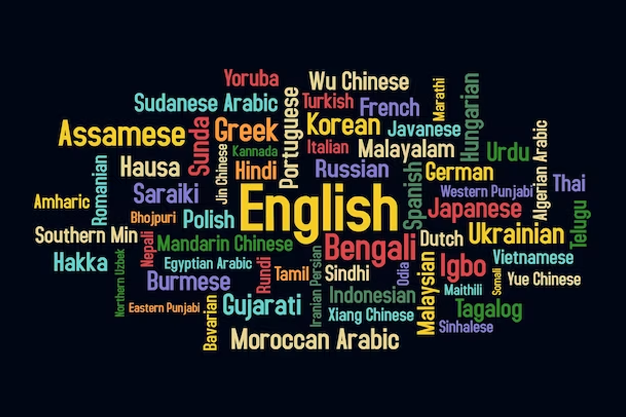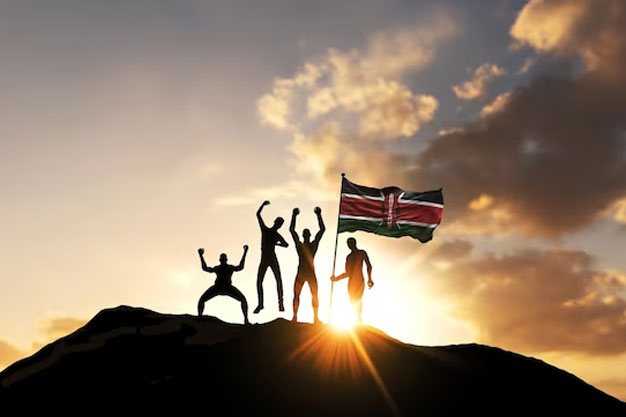WHY NAIROBI KENYA?
Optimise Outsourcing: Igniting Kenyan Potential
National languages
English as a First Language: Kenya, Nairobi is English speaking the same as the UK. Kenya Ranked No. 2 On The English Proficiency Index 2022 In Africa & 20th in the world.


Time Zone Compatibility
Nairobi operates in the East Africa Time (EAT) zone, which is only +2 hours (BST) and +3 hours in the winter. This time zone compatibility allows for real-time collaboration, quicker response times, and extended working hours, resulting in improved productivity and faster project turnaround.
Access to a skilled committed workforce
Kenya has a large pool of talented and skilled professionals who are well-educated and proficient in English. By outsourcing to Kenya, UK SMEs can tap into this talent pool and benefit from their expertise, Kenyans are highly committed to quality employment and have a strong work ethic.


Young Educated Talent Pool
Nairobi’s Population: As of 2021, the population of Nairobi is estimated to be around 4 million people, the population of Nairobi is expected to reach around 7 million by 2030. Nairobi has a relatively youthful population, with 60% below the age of 24. Over 800,000 young people are joining the workforce every year in Kenya.
The education system in Kenya is based on the British system, and many schools and universities in Kenya follow a similar curriculum to that of the UK.
300,000 people in Nairobi have completed university education or higher, based on 2019 data. It is estimated that around 100,000 students graduate every year, by 2030 Nairobi will have over 1,000,000 graduates.
Universities in Nairobi: Nairobi is home to several universities, including the University of Nairobi, Kenyatta University, Jomo Kenyatta University of Agriculture and Technology, Strathmore University, Catholic University of Eastern Africa, Daystar University, United States International University Africa, Mount Kenya University, and Technical University of Kenya, among others.
Experience a speedy hiring process
With a vast pool of candidates and limited vacancies, we are able to secure top-talent (we define this as the top 10% of candidates for your role) in as little as 4 weeks. In Kenya, it is common for candidates to have short notice periods, sometimes as little as 2 weeks, and we are even able to buy candidates out of their notice periods to ensure an immediate start. For example, you can have a highly qualified management accountant onboard within just 4 weeks, which is significantly faster than the UK’s average recruitment timeline.


Leveraging Kenya's lower cost of living
Salaries in the country are typically only 20% of those in the UK. This translates into significant cost savings for your business without compromising on the quality of talent you’re able to attract. With our help, you can effectively allocate your resources towards driving growth, supporting your team, and reducing overhead costs. This means you can invest in other areas of your business while still maintaining a highly skilled and dedicated workforce.
Competitive advantage
Outsourcing to Kenya can help UK SMEs to gain a competitive advantage by, reducing costs and improving their efficiency. This can help them to stand out in the marketplace and attract more customers.


Impact outsourcing
Allows you to not only improve your business operations but also make a positive social impact in Kenya. By partnering with Optimise Outsourcing, you can contribute to the economic development of Kenya by creating job opportunities that would never of excited otherwise and contribute to enhancing a skilled workforce.
Excellent Airport Connectivity
With convenient non-stop daily flights from London to Nairobi, it is remarkably straightforward to fly your team and/or line managers to Nairobi once or twice a year. We can handle all the necessary arrangements, including visas, accommodation,transportation, and even organise an exciting safari trip if desired!

Historical and Cultural Ties between the UK and Nairobi, Kenya
Nairobi, founded in the late 19th century as a railway camp, swiftly emerged as a vibrant hub for trade and commerce. It later became the capital of British East Africa, playing a pivotal role in Kenya’s economy and society post-independence. As a former member of the British Empire and a commonwealth country, Kenya shares a historic relationship with the UK. Even after gaining independence, Kenya has maintained robust political and economic connections with the UK and takes pride in its membership in the Commonwealth.

Trade and Shared Love for Tea
Both the UK and Kenya have a strong affinity for tea, with Kenya being one of the largest exporters of tea to the UK. Additionally, Kenya is known for its export of flowers and vegetables to the UK.
Service Sector
The service sector in Kenya, encompassing finance, real estate, tourism, creatives and ICT, has witnessed substantial growth in recent years. It truly is becoming a rising global player with some top talent to boot.
Nairobi as a Financial Hub
Nairobi, the financial hub in East Africa, is home to a thriving accounting and finance sector with over 50,000 professionals. This dynamic landscape is bolstered by international accounting firms, including Deloitte 1000+, PwC 900+, EY 800+, KPMG 700+, BDO, Grant Thornton, and Mazars.
Legal and Accounting Systems
The legal system in Kenya blends British and Kenyan laws, incorporating aspects of the common law system inherited from the British colonial era alongside locally developed legislation. Similarly, Kenya’s accounting system aligns with International Financial Reporting Standards (IFRS) while also drawing influences from the British accounting system.
Royal Connections and Shared Traits
Notable members of the British royal family, such as Prince William, Prince of Wales, and Prince Harry, have made multiple visits to Kenya. Prince William even proposed to Kate Middleton during a trip to Kenya. Furthermore, King Charles has fostered a close relationship with the Maasai community in Kenya, which has a rich tradition of monarchy. The UK and Kenya share several similarities, including the use of the English language, Christianity as the dominant religion, a passion for sports like football, and approaches to education. British tourist visits to Kenya range from approximately 100,000 to 150,000 annually. 150,000 born Kenyans now live in the UK.

